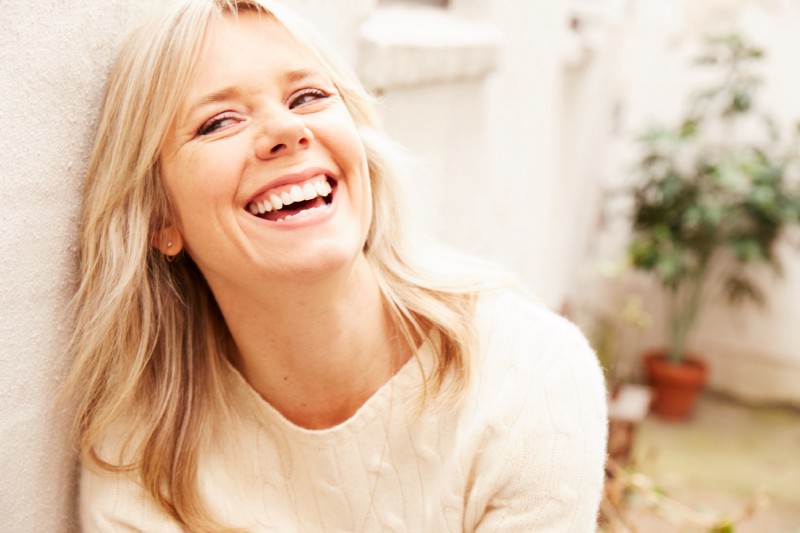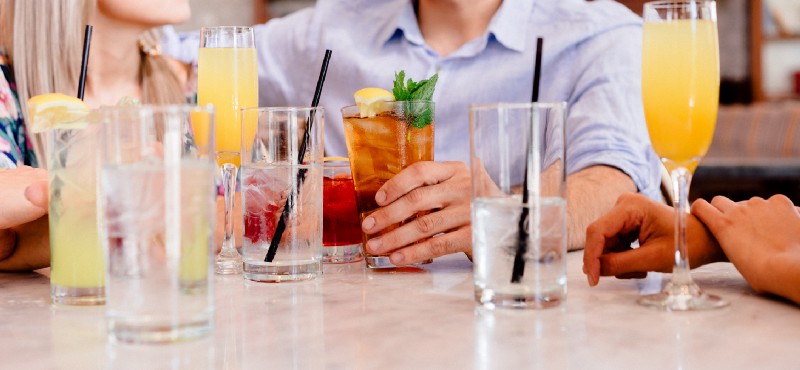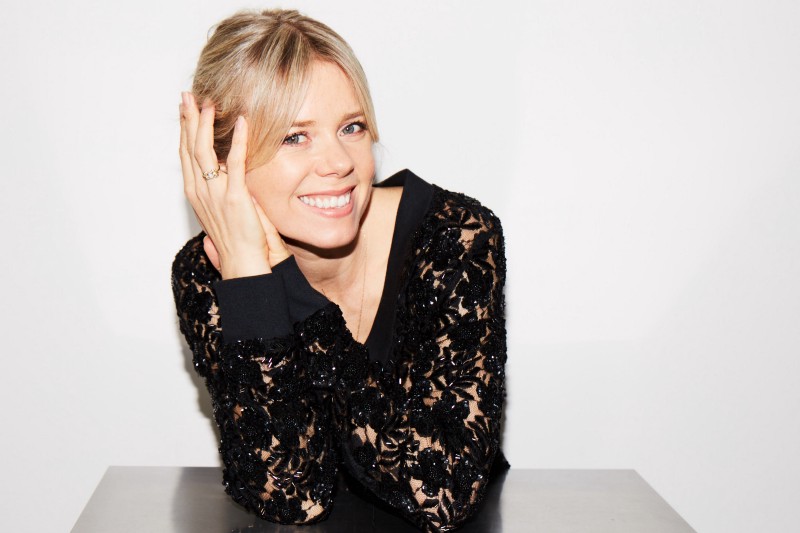
The holidays are oftentimes equal parts gratitude, excitement, and stress. It can be challenging to stay grounded and look after ourselves this time of year. How can we prepare for the sensory overload?
Today, modern mystic, author of Material Girl, Mystic World, founder of The Numinous, and co-founder of Club SÖDA (an event series for the sober and sober curious), Ruby Warrington, shares her top tips for more mindful drinking during the holidays.
Splendid Spoon: Hi Ruby! Tell us about your journey to becoming sober curious.
Ruby Warrington: In my 20s and 30s I worked as a journalist in London and became a habitual social drinker — I drank 3–4 nights a week, and often to excess at the weekends. It went with the territory of my upbringing and career, and I drank the same as all my friends.
I began suffering acute anxiety, to which alcohol was a key contributor. I decided to cut back. It was difficult: my social life centered around booze. I had an emotional alcohol addiction, but didn’t identify as an alcoholic. I went to AA and it didn’t resonate. I experimented with periods of abstinence, and realized this was the only way to break my habits.
SS: What does it mean to be sober curious?
RW: I call this path sober curious, as it means getting curious about alcohol and the role it plays in our society. For me, this included questions like:
- Why do I still drink, even though I know it makes me feel like sh*t?
- Why is alcohol the backdrop to every social situation?
- What is it even doing to my body?
- When does alcohol feel like an appropriate substance for me?
Answering these questions has required a ton of self-inquiry and inner work. It made me see that drinking is often a knee-jerk choice, rather than a conscious, considered one.
SS: What is Club SÖDA NYC?
RW: Club SÖDA NYC is a live event series for the sober curious, which I launched in 2016 with my co-host Biet Simkin. Many friends had seen my sober curious journey, and confided they felt the same way about alcohol. There was no middle ground for people who had identified booze as being problematic for whatever reason, and signing up for AA.
“Coming out” and talking about my situation helped me identify my key drinking triggers and held me accountable for my sober intentions. I want the events to create a shame and stigma-free space where people can ask questions about their relationship with alcohol. I also want them to be fun social situations where people can meet sober curious friends!
SS: How can we change our drinking patterns before the alcohol-heavy holidays hit?
RW: If you’re used to drinking in social occasions, getting sober curious will mean a lot of sober firsts: first sober dinner party, first sober nightclub, first sober vacation etc.!
This seems daunting, but it’s only conditioning that tells us we need a drink. I approach every sober first as an adventure, where I’m curious about how it will feel to be fully present. It may not always be joyful or fun, but I’ve never found it as difficult as I thought I would. I usually find I have better conversations and feel more connected to my friends when I don’t drink.

SS: Do you have any hacks to avoid alcohol or drink less at parties?
RW: If there’s not going to be food, eat before you go. Being hungry makes it harder to resist reaching for a cocktail. If I can take my own drinks, I bring a few non-alcoholic beers. I’ve found them to be helpful in tricking my brain into thinking I’m drinking, and I love the taste!
Drinking endless rounds of soda and lime can get boring. Ask the bar staff to make you a mocktail or try a tonic water with bitters for something with a grown-up tang. It’s also important to own your not drinking as a personal choice, and not judge anybody else’s drinking choices.
SS: How can we be brave enough to make conversation without alcohol’s help?
RW: I’m amazed at how much better conversations are without booze! They don’t get better with a glass of wine — I think our tolerance for boring convos just increases with booze!
Getting past the first two rounds is key, as that’s when your brain freaks out and tells you you need alcohol. You’ll soon learn whether the people you’re with genuinely make you feel like your happiest, most relaxed self. Getting sober curious could definitely mean shifts in your close friendship groups.
SS: We’ll be surrounded by drinking triggers during the holidays. How can we stay centered when they come up?
RW: Meditation is essential for creating distance between you and the triggers. A regular practice helps you be mindful of your actions. You’ll soon become more aware of when you reach for a glass of wine, giving you space to step away from it.
Another good trick to use is to “play it forward” i.e. create a story in your mind about where that drink is likely to lead. Feel everything that comes up, the initial buzz, the slowing down and numbing of senses, stumbling home, waking with a headache, and feeling low afterwards. For me, connecting to the inevitable outcome is enough to stop me starting!

SS: Do you have personal guidelines for the holidays?
RW: My only rule is to put my own needs first. Peer pressure is one of the biggest drinking triggers. There could be a lot of questions (read: judgement) about your sober curious choice. In these situations, I remind myself why I’m not drinking, and acknowledge that I don’t owe it to anybody to go against what feels best for my mind, body, and soul.
